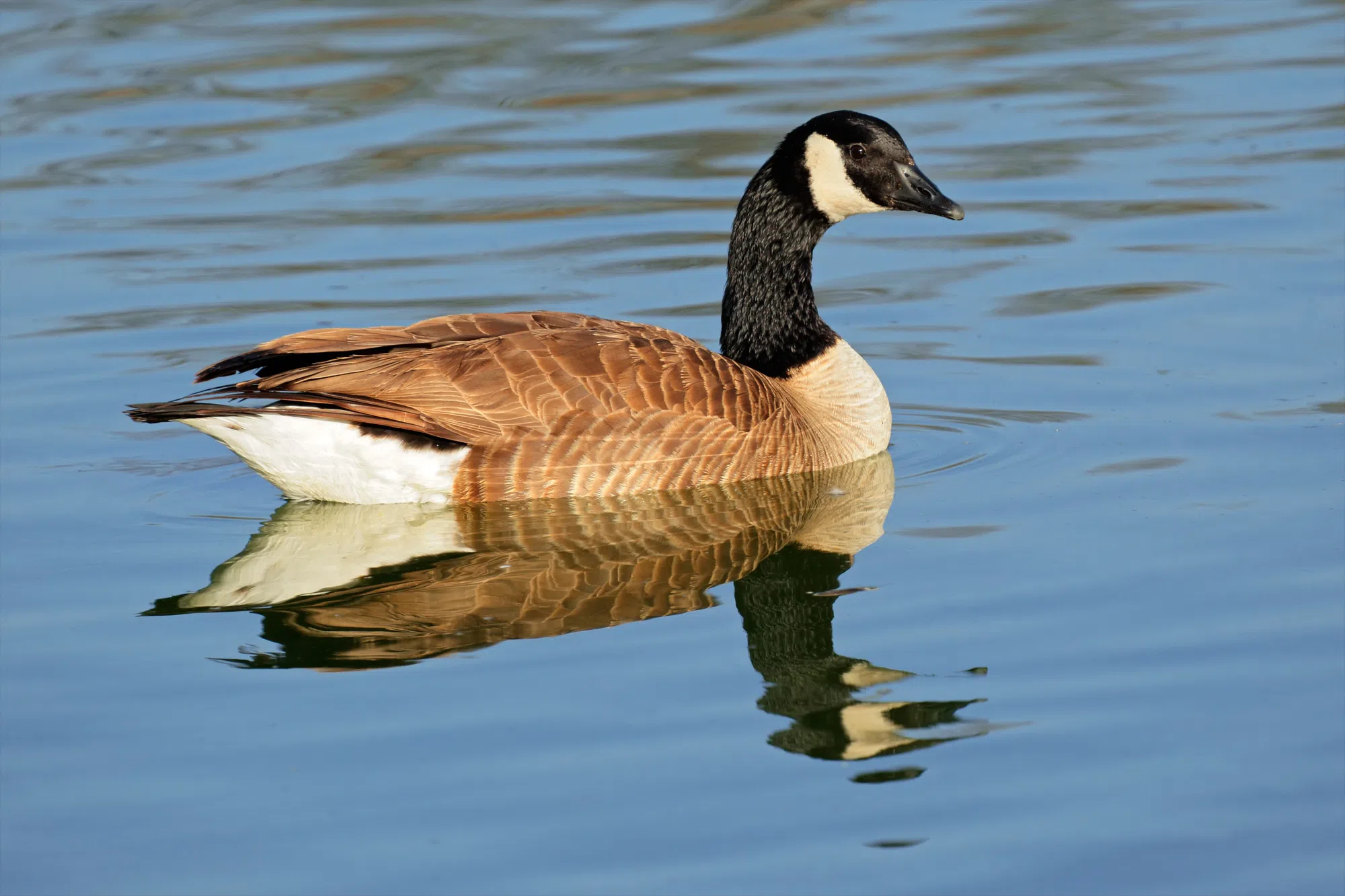The Haliburton Kawartha Pine Ridge District Health Unit (HKPRDHU) has issued a warning after a Canada goose found dead in Cobourg was confirmed to be infected with avian influenza and several other birds are also suspected to have died from the infection.
The goose was found by the Town of Cobourg By-Law Enforcement team in the Cobourg harbour on January 3.
Avian influenza was confirmed after the bird was submitted to the Canadian Wildlife Health Cooperative (CWHC).
This follows reports of a large die-off of birds, including geese and ducks, in the Cobourg harbor area between January 3 and 6.
It is believed that the die-off was a result of avian influenza.
The HKPRDHU says the risk of transmission to humans in this case is very low since the birds were found in an open environment and there are no remaining dead birds observed at the site.
However, the Health Unit is reminding the public to remain cautious and adhere to recommended safety precautions if interacting with wild birds.
“As of now, there have been no confirmed human cases of avian influenza within our district area, and we anticipate that this trend will continue,” said Dr. Natalie Bocking, Medical Officer of Health, with the HKPR District Health Unit. “It’s important for everyone to understand the risks avian influenza poses, not only to wild and domestic bird populations but also to human health. We will continue to monitor the situation, and we urge residents to take all necessary precautions to protect both themselves and animals during this time.”
HKPRDHU offers these tips:
Minimize Your Exposure
To minimize the risk of exposure to avian influenza, residents are encouraged to follow these precautions:
Avoid direct contact with ill or dead wild birds and animals. If handling is necessary, wear proper personal protective equipment i.e. gloves, mask and eye protection, place the animal in two sealed plastic bags, and wash hands thoroughly after contact.
For disposal of multiple birds/animals, contact your local municipality.
Report sick or dead wildlife to the Canadian Wildlife Health Cooperative at 1-800-567-2033.
Follow safe cooking guidelines when preparing poultry and eggs. Always cook poultry to an internal temperature of 74°C (165°F) to ensure safety from potential pathogens. Furthermore, it is crucial that individuals do not handle or eat any animals that appear to be sick or that have died from unknown causes.
Keep pets indoors or on leashes when outside to prevent them from coming into contact with wild birds, including waterfowl, to reduce the risk of exposure.
Monitor domestic birds for signs of illness and follow recommendations from the Government of Canada.
Hunters and trappers should also be careful when handling wild birds and some mammals, especially when field dressing, plucking and cleaning game. Following biosecurity measures and safe handling and cleaning guidelines such as wearing rubber gloves, using a well-ventilated area and washing your hands and surfaces, can drastically reduce your risk of exposure to avian influenza.
How to Report Dead Birds/Animals
Wildlife:
Report any sick or dead wild birds/animals to the Canadian Wildlife Health Cooperative at 1-800-567-2033.
Domestic Birds:
If you observe sick or dead birds or other wildlife and suspect that avian influenza may be involved, contact your regional avian influenza hotline or the Canadian Wildlife Health Cooperative.
If you are concerned about your poultry or pet birds, follow the preventive actions recommended by the CFIA.
What to Do if You Experience Symptoms
Symptoms of avian influenza can be similar to the flu, including:
Fever, cough, sore throat
Runny nose, body aches, fatigue
Red eyes, shortness of breath
Less common symptoms include diarrhea, nausea, and seizures.
If you are exposed to birds, animals, or contaminated environments suspected of avian influenza, or if you experience symptoms, it is important to self-isolate and contact your healthcare provider, Health 811, or the health unit for guidance. Additionally, continue to isolate from others, practice respiratory etiquette by wearing a mask and maintaining proper hand hygiene, improve ventilation in your environment, and regularly clean surfaces to help prevent the spread of infection.
For more information, please visit hkpr.on.ca/AvianFlu. Stay informed, take necessary precautions, and help keep our community safe.






